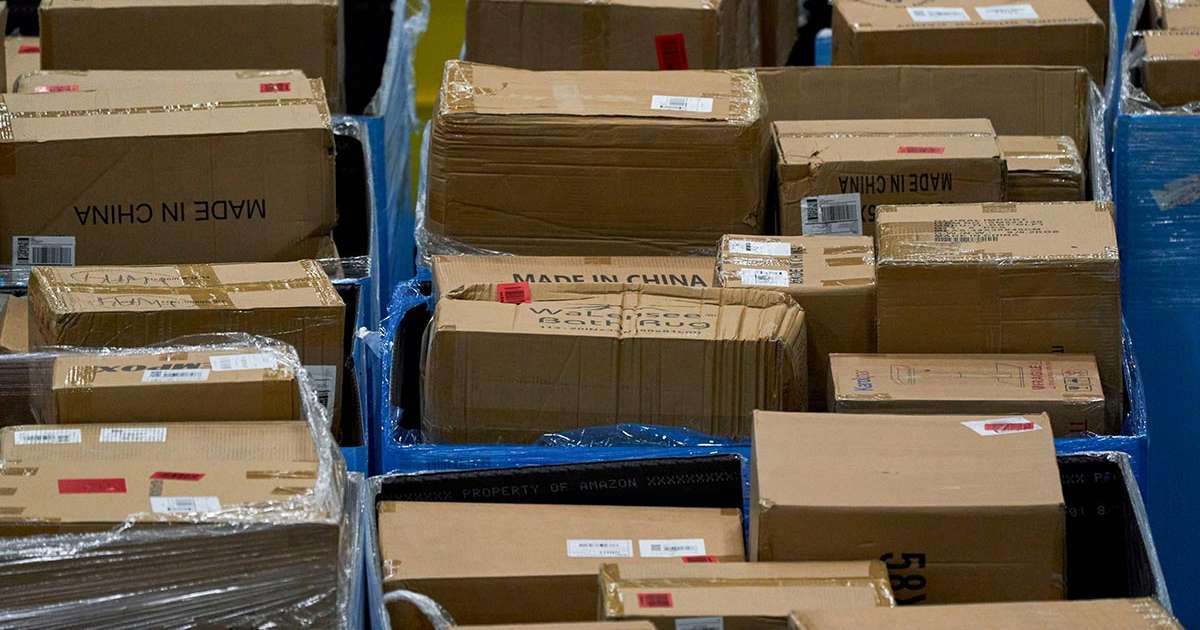Trade Court Declines to Reinstate Tariff Exemption on Low-Value Imports Amid Legal Battle
Trade Court Declines to Reinstate Tariff Exemption on Low-Value Imports Amid Legal Battle
By
Rachel Steinberg
Last updated:
July 29, 2025
First Published:
August 6, 2025

Photo: Transport Topics
U.S. Trade Court Rejects Bid to Restore Duty-Free Status for Low-Value Imports—for Now
A federal trade court on Monday refused to temporarily block former President Donald Trump’s executive order that eliminated the de minimis tariff exemption for low-value imports under $800. The decision is a blow to auto parts retailer Detroit Axle, which had filed a lawsuit claiming the policy reversal was unlawful and posed an existential threat to its business model.
The ruling, issued by a three-judge panel of the U.S. Court of International Trade, declined to issue a preliminary injunction and stayed the case pending the outcome of V.O.S. Selections v. Trump, a broader lawsuit already challenging many of the same tariffs.
Legal Context: Overlapping Lawsuits and Paused Relief
In May 2025, the trade court had initially ruled against Trump’s controversial “reciprocal tariffs,” a broad set of duties imposed on countries not offering comparable access to U.S. goods. That decision, however, was paused by the U.S. Court of Appeals for the Federal Circuit, leaving Trump’s tariff policies in place as the legal process continues.
Citing redundancy, the judges wrote, “This court has already granted, and the Federal Circuit subsequently stayed, all relief Axle requests,” and that no further interim relief would be granted in Detroit Axle’s case. Oral arguments in the V.O.S. Selections case are set to be heard this Thursday, a proceeding that may have significant implications for both lawsuits.
Detroit Axle’s Business Model Under Threat
Detroit Axle’s legal complaint paints a dire picture. The company claims Trump’s April 3 executive order, which ended the de minimis exemption for Chinese imports effective May 2, could wipe out its business within months. The exemption had previously allowed companies to import goods valued at less than $800 without paying customs duties—a policy that particularly benefited importers of low-cost Chinese goods.
To navigate the earlier tariff landscape, Detroit Axle built a distribution hub in Juarez, Mexico, specifically designed to process sub-$800 shipments from China. These packages, sent directly to U.S. customers, avoided steep tariffs—some of which now reach 72.5% under the new regime.
But the termination of the exemption has thrown that model into chaos.
“Under the now-applicable Chinese tariffs... it is cost-prohibitive for Detroit Axle to import parts from its suppliers in China,” the company wrote in court filings. “Its frugal buyers will not bear the increased prices, and Detroit Axle cannot absorb them.”
Workforce at Risk as Layoffs Loom
The financial strain has had immediate consequences. In a June filing with Michigan state authorities, Detroit Axle announced it would shutter its Ferndale warehouse and lay off 102 employees by August 25, citing the “sudden imposition of government tariffs” that disrupted its supply chain and inflated its costs.
“The decision to close this facility is due to unforeseen circumstances,” the company said. “We expect to exhaust our remaining inventory by the end of June.”
Detroit Axle emphasized that its contracts with Chinese suppliers had allowed it to offer competitive pricing in the U.S. market. Without the de minimis exemption, it warns, not only is the cost advantage lost—but the viability of its entire business is now in question.
Policy Rationale: Tariffs Target Illicit Shipments, Trump Says
In defense of the policy, Trump administration officials have pointed to the rise in illicit shipments, including synthetic opioids, being disguised in low-value packages. The April order specifically accused Chinese-based shippers of exploiting the de minimis loophole to hide contraband.
While security concerns may justify the crackdown for some policymakers, small and mid-sized importers argue that the economic fallout is severe and disproportionate, especially as Chinese e-commerce giants like Shein and Temu also benefit from the exemption.
What’s Next: Broader Ruling Could Set Precedent
All eyes now turn to the federal appeals court hearing this Thursday. A ruling in the V.O.S. case could establish a precedent affecting not only Detroit Axle but also hundreds of businesses that rely on low-cost imports to stay competitive in the U.S. market.
Popular articles
Subscribe to unlock premium content
Disney’s Timeless Magic and How the Entertainment Giant Continues to Shape Culture and Innovation

Imran Khan’s Economic Missteps Amid Political Chaos in Pakistan

The Philippines’ Digital Shift How Remittances and BPO Are Fueling Growth

Disney’s Timeless Magic and How the Entertainment Giant Continues to Shape Culture and Innovation

Imran Khan’s Economic Missteps Amid Political Chaos in Pakistan

Disney’s Timeless Magic and How the Entertainment Giant Continues to Shape Culture and Innovation









